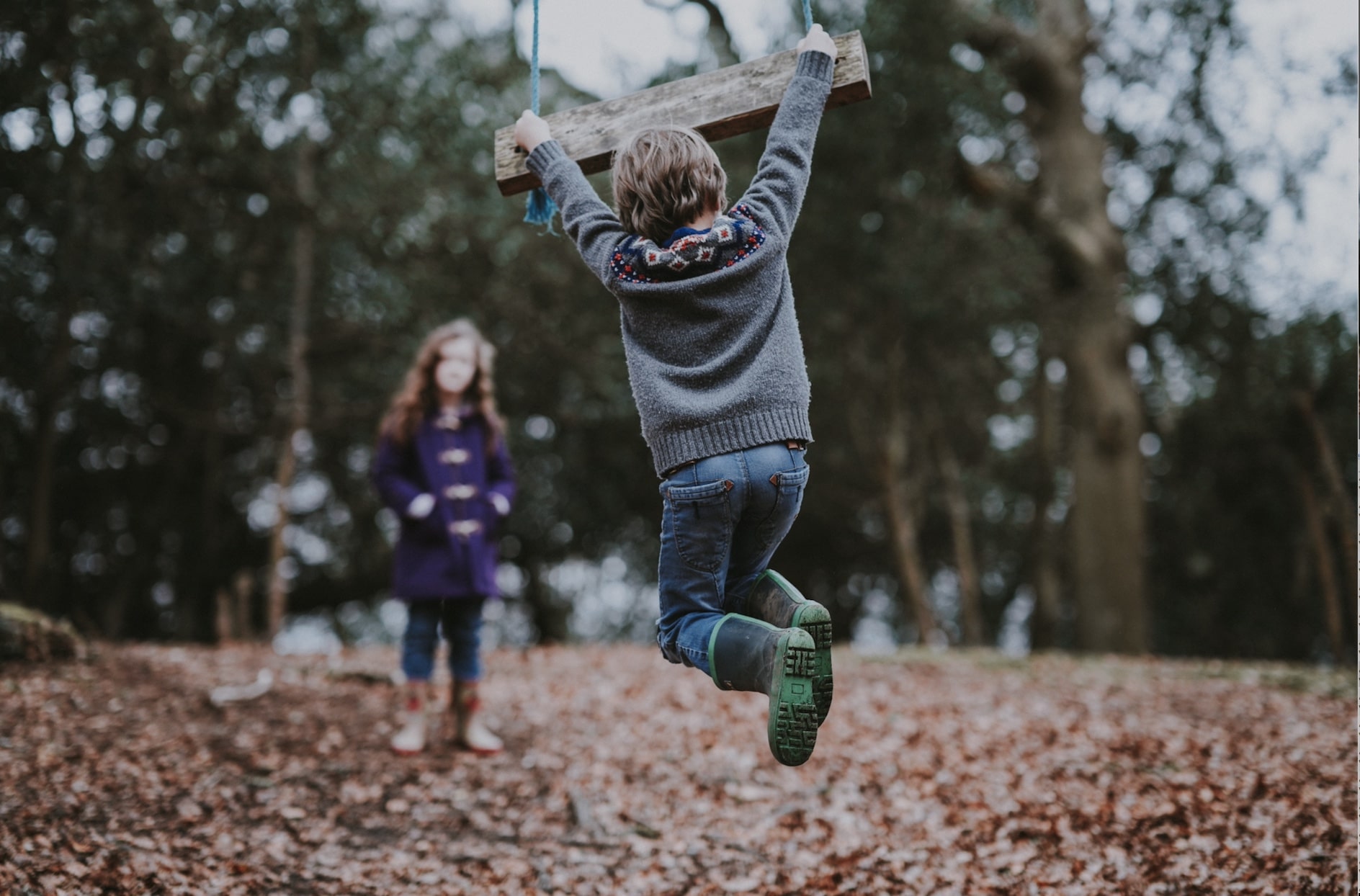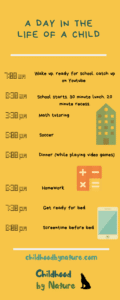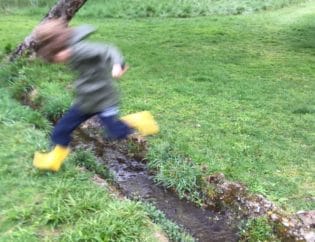
Take a close look at a child's life today.
Their schedule might look something like this:
 Even with a schedule as busy as any corporate executive, something is still missing. Play. But with competition such as math tutoring, swim team, travel soccer, gymnastics and basketball, most parents place play at the very end of the list, something to squeeze in if there's time, which there really ever is.
Even with a schedule as busy as any corporate executive, something is still missing. Play. But with competition such as math tutoring, swim team, travel soccer, gymnastics and basketball, most parents place play at the very end of the list, something to squeeze in if there's time, which there really ever is.
And it's not just in the US. The play deficit is felt around the world. All over, childhood is becoming more structured, sedentary and institutionalized. This campaign from Persil drew a great deal of attention with its finding that British children "spend less time outdoors than prisoners."
The problem is that kids need play. The American Academy of Pediatrics (AAP) says that play protects children's emotional development. It also says that a loss of free time from a hurried lifestyle can be a source of stress, anxiety, and even depression in many children.
Other researchers also tell us that unstructured free play outside brings a host of benefits to children-from being smarter to more cooperative to healthier overall.
While it may feel like we're making gains in childhood, we've lost something crucial to a child's development-- the space and time for play. The trend may be changing our kids. Some experts say that kids today don't like to play like they used to. Too often, they complain they are bored if they are not on a screen. Some even seem incapable of wonderful, creative, imaginary play.
The AAP recommends that kids relax and get about an hour per day of unstructured time to kick back and unwind. One hour. That's not a lot to fit in. If your child's school doesn't offer an hour of play time, make time for it after school. Say no to that one extra activity or keep extracurriculars to the weekend.
Your child is not missing out. They are not falling behind. They are doing what they're supposed to be doing at this precious and fleeting time of life-- being a KID.











